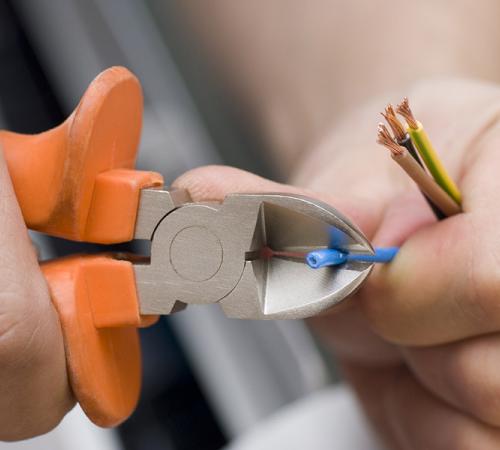

Electricians are in short supply. Recent research has revealed a growing skills shortage (external link) in the skilled trades sector. This means the demand for these types of service is increasing, which is good news for people who are thinking of becoming an electrician.
What skills do you need for becoming an electrician?
To become an electrician, you’ll need to be good at:
- Problem-solving
- Organising and planning
- Interpreting technical drawings, plans and diagrams
- Working methodically and safely
Get an industry-recognised qualification
This could be one of the following:
- A Level 3 NVQ diploma in Installing Electrotechnical Systems & Equipment (Buildings, Structure and the Environment)
- A Level 3 diploma in Electrical Installations (Buildings and Structures) when taken in an apprenticeship
- A Level 3 NVQ diploma in Electrotechnical Services (Electrical Maintenance)
These are all work-based qualifications, so you’ll be able to get relevant experience at the same time.
The Gold Card
Once you’ve completed the necessary qualifications, you can apply for the Gold Card, which will prove that you can carry out unsupervised work to industry standards.
Market your electrician business
Word-of-mouth advertising can go a long way, but it’s also wise to invest in some marketing so prospective customers can find you.
Here are a few useful marketing tips for becoming an electrician:
- Set up a website where you can advertise your services and create content that targets local customers with relevant keywords (i.e. ‘electricians in south London’, ‘electricians in York’)
- List your business on the Yellow Pages and Google Maps.
- Use social media outlets like Facebook and Twitter to promote your services and attract followers
- Ask your customers to write a review of your services (or offer an incentive: i.e. 10% off your next check-up)
Why do you need electrician insurance for an electrical business?
As a professional committed to delivering the best service every time, we know how important it is for you to protect your business. However, even if you have a loyal customer base and extensive experience, you may not be immune to the occasional mistake.
That’s why electrician insurance, including professional indemnity insurance, is essential. It can help cover expensive legal costs and protect your business if someone claims compensation from you due to errors, omissions, or professional negligence.
What type of insurance is appropriate for you?
We appreciate that electricians don’t just do one type of work, either. Their skills can differ hugely depending on their specialism, which is why the insurance requirements can vary, too.
We can provide cover for all types of electrician businesses, from maintenance electricians to electro-technical panel builders.
Because electricians regularly work with members of the public, it’s also worth having public liability insurance to minimise the risk of expensive claims.
With the correct insurance, you could be protected if you cause accidental damage to a client’s property while working or if a member of the public sustains an injury at your workplace or because of your work.
When becoming an electrician, you’ll be required to have employers’ liability insurance if you have one or more employee. If your staff become ill or sustain an injury at work, they could claim compensation from you.
If you want to understand more about why your business might need to invest in both types of liability insurance, you can check out our FAQ guides.
Understanding the difference between employers’ and public liability cover is important to getting the right protection in place for your business, and your staff.
If you know that you aren’t going to employ anyone in the near future, make public liability cover the primary consideration.
Electrical contractors’ insurance
This type of electrician insurance is required if you supervise sub-contractors in your work, otherwise you may have to compensate them if they become ill or sustain an injury while working for you.
A tailored form of contractors’ insurance can also protect you from other expensive costs such as medical care and legal cases.
Disclaimer:
At Hiscox, we want to help your small business thrive. Our blog has many articles you may find relevant and useful as your business grows. But these articles aren’t professional advice. So, to find out more on a subject we cover here, please seek professional assistance.



